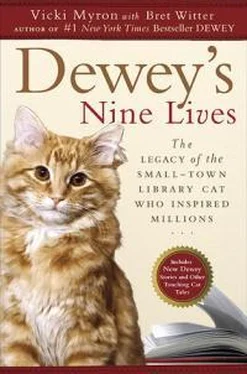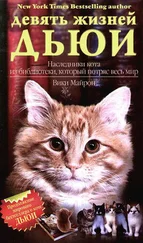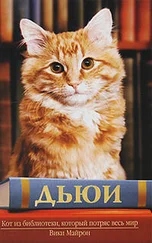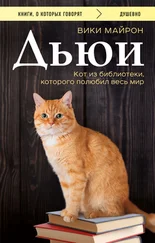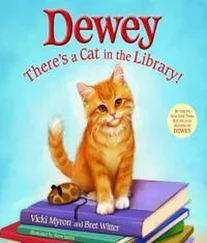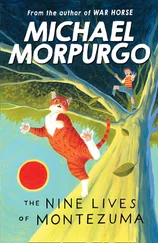I remember those rural childhood days myself: the long, slow seasons, the hours spent playing with my brothers in the yard while my parents worked to make the farm produce. I still remember, as if it was yesterday, the afternoon my dad brought home Snowball, the first animal I ever loved. It was a hot early summer day, and I stood in the yard watching him coming closer and closer out of the knee-high corn. Dad was sweating so badly under his hat, it almost looked like tears, and as I followed his slipstream into the house, I could see he had something in his hands, even though I didn’t know what it was.
“It must have been born in the field,” he told my mother, “because there were a bunch of them hidden down there. The mother and other babies were killed by the plow. This one,” he said, holding up the kitten, which was covered in blood, “had its back legs cut off.”
Most farmers would have left the badly injured animal to die, letting nature have its way, but when my dad saw the kitten was still alive, he picked it up and rushed home. My mother, as much an animal lover as my father, took over from there, nursed it for a month with milk from a bottle. She gave it warm blankets at night, and let it stay in her sweltering kitchen by day. I watched over her shoulder as she cared for it, amazed by the kitten’s recovery. By midsummer, Snowball’s stumps had healed. A lot of people think cats are lazy, but the effort Snowball made! The determination! In no time, it seemed, she developed the ability to balance on her front two legs, with her back end held straight up. Then she learned to hop, with her rear end swinging in the air like a highfalutin lady, and her tail pointed toward the sky. I loved it. That summer, Snowball and I played together every day. I ran around the farmyard, laughing and shouting, and she hopped after me, her back end waving. In the fall, at the end of each school day, I jumped off the bus, threw down my book bag, and raced into the farmyard, yelling for her. She didn’t live long, and when she died I was inconsolable for a while, but I will never forget the way Snowball danced around that yard, in slow motion, like she was doing the jitterbug hop. Her determination, and the lesson from my parents to respect and cherish every living thing, were the lasting legacies of my summer with Snowball.
How different was five-year-old Yvonne’s experience? I don’t know. I don’t know if she played with her older siblings, or if she was left alone in the yard. I don’t know if she chose the company of cats out of loneliness or out of a natural love. I do know her parents, like a lot of farm people, didn’t think much of cats and didn’t help her care for the ones that kept appearing in their yard. “The cats were always dying or disappearing,” Yvonne told me. “It broke my heart. But my parents would never buy them food, no matter how often I asked. They said they couldn’t afford it.”
My clearest childhood memory is of my father, with that injured cat in his hands, talking with my mother. Yvonne’s clearest memory is of a photograph. She was six. Her mother wanted a picture of her kids with their favorite cats. Yvonne couldn’t find her favorite, a black-and-white kitten known as Black-and-White. Her mother told her to quit looking already and stand with her brother and sister, who were both holding up wiggling cats to the camera.
“Come on, now, smile,” her mom commanded.
“I can’t find my kitten.”
“It doesn’t matter. Just smile.”
Afterward, Yvonne stared off into the neighboring fields, biting her lip. There are flat empty spaces in Iowa, even in the towns, where you can watch the world stretch away from you. You can see forever out there if you keep looking, but eventually Yvonne turned away, walked over to her mother, and asked if she would take a picture of her with one of the other cats.
“No,” her mom said. “I’m out of film.”
“I wanted to cry,” Yvonne told me, “but I didn’t. I knew they would make fun of me.”
Ten years later, when Yvonne was sixteen, her father got a job at the Witco factory, and the family moved to Spencer. I remember venturing into Spencer when I was a teenager living in the nearby town of Hartley. It was terrifying. The girls at Spencer High School seemed so worldy, so willing to dress fashionably and talk to boys and linger on street corners, as if they were one step away from being Pink Ladies in Grease . I remember thinking they were physically bigger than us country kids, that they could crush us if they wanted. That was Spencer to me, yet I had every advantage. My grandmother lived in town, so I knew the streets and shops; I went to Hartley High School, one of the larger schools in the surrounding area; I was an outgoing, popular girl who almost never felt out of place or overwhelmed. So I can imagine what it must have been like for Yvonne, a shy girl who had never spent time in Spencer, never succeeded in school, and never been comfortable with social situations, even in Sutherland. I understood what she meant when she told me her year and a half at Spencer High School was torture.
Her parents gave her one thing to ease the loneliness: a cat. Just before the move to Spencer, Yvonne’s aunt May’s cat gave birth to a litter of half-Siamese kittens. As soon as Yvonne saw them, she fell in love. Somehow, she convinced her parents to let her adopt one of the half-Siamese kittens. When they arrived for the adoption, the rambunctious brood was sprinting around the yard, rumbling and tumbling and throwing dirt in one another’s faces. Yvonne was overwhelmed. She stared at them and wondered, How am I ever going to pick my cat?
Then one kitten, who must have been hiding, crept over and looked up at her with big shy eyes, as if whispering, in the quietest and sweetest voice imaginable: “Hi.”
“Okay, I’ll take you,” Yvonne whispered back.
She named the kitten Tobi. She was browner and rounder than a typical Siamese but had the luxurious softness and gorgeous blue eyes so typical of the breed. And soft wasn’t just a description of her fur. Tobi was a soft cat. Soft spoken. Soft in manner. She wasn’t courageous, either. She ran when anyone entered a room; she ran when she heard a door open anywhere in the house; she sprinted to the safety of Yvonne’s bed when she heard footsteps on the stairs. She went outside only once, running right past Yvonne as she stood in the doorway. Yvonne stepped out onto the concrete stoop and saw Tobi disappearing around the corner of her parent’s Spencer house. She ran the other way around the house and met her in the backyard. Tobi came tearing toward her and leapt straight into her arms, a look of terror on her soft little face.
“Oh, don’t do that again, kitty,” Yvonne begged. “Please don’t do that again.” It was impossible to tell who was more scared.
“Tobi was a cuddler.” That was the way Yvonne described her. “She always wanted to be on top of me. She slept in my bed every night.”
“I bet that made you feel good,” I replied.
“Yeah, it did,” she said. Then she sat looking at me, waiting for my next question.
After high school, Yvonne joined her father at the Witco plant. The factory produced handheld hydraulic tools, known as grease guns, that squirt grease into small spaces inside car engines and other machines. After her struggles at Spencer High School, the line was a relief. The work was fast-paced and physically demanding, but Yvonne was young and strong. She could fasten bolts as quickly as anyone on the line, and it didn’t require talking to her colleagues.
“It wasn’t the best job in the world,” she told me, as if uncomfortable with her obvious pride in a task well done. “But it was work.” And there is nothing better, as I well know, than meaningful work.
Читать дальше
